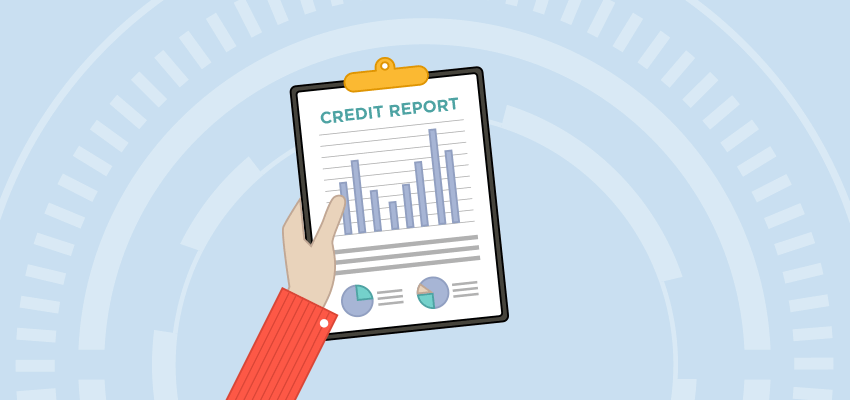When it comes to managing personal finances and improving credit, understanding how a credit card limit works is essential. A credit card limit refers to the maximum amount you can charge to your credit card account. A high credit card limit can influence your financial life in multiple ways, particularly your credit score. In this article, we’ll explore how a high credit card limit impacts your credit score, the factors involved, and whether a high limit is beneficial or detrimental to your overall financial health.
Key Takeaways:
- A high credit card limit can improve your credit score by lowering your credit utilization ratio.
- If you increase your spending to match your higher limit, it can negatively impact your credit score.
- Responsible management, such as keeping your credit utilization below 30% and paying on time, is key to benefiting from a high credit limit.
- A high credit limit could improve your chances of securing loans and other credit, but only if you manage it well.
What is a Credit Score?

Before diving into the specifics of how a high credit card limit affects your credit score, it’s important to understand what a credit score is and why it matters. A credit score is a numerical representation of your creditworthiness. It is based on your credit history, which includes your borrowing habits, repayment history, and the overall management of your debts.
Credit scores typically range from 300 to 850. The higher the score, the more likely you are to be considered a low-risk borrower by lenders. A good credit score can help you secure favorable loan terms, lower interest rates, and other benefits. The primary factors that influence your credit score include:
- Payment History (35%): Whether you make timely payments.
- Credit Utilization (30%): The amount of available credit you’re using.
- Length of Credit History (15%): The duration of time you’ve been using credit.
- Types of Credit in Use (10%): The variety of credit accounts you hold.
- Recent Credit Inquiries (10%): Whether you’ve recently applied for credit.
With these factors in mind, let’s explore how a higher credit card limit can affect your credit score, positively or negatively.
How Does a High Credit Card Limit Affect Credit Utilization?
| Scenario | Credit Limit | Credit Balance | Credit Utilization | Impact on Credit Score |
|---|---|---|---|---|
| Low Credit Limit, Low Balance | $1,000 | $200 | 20% | Positive impact if under 30% |
| Low Credit Limit, High Balance | $1,000 | $800 | 80% | Negative impact, high utilization |
| High Credit Limit, Low Balance | $5,000 | $200 | 4% | Positive impact, low utilization |
| High Credit Limit, High Balance | $5,000 | $3,000 | 60% | Negative impact, high utilization |
| Higher Credit Limit, Same Balance | $5,000 | $500 | 10% | Positive impact, lower utilization |
| Increased Spending on High Credit Limit | $5,000 | $4,500 | 90% | Negative impact, high utilization |
One of the most significant ways a high credit card limit affects your credit score is through credit utilization. Credit utilization is the ratio of your credit card balances to your credit limits, expressed as a percentage. For example, if you have a $1,000 credit limit and a $500 balance, your credit utilization is 50%. Ideally, experts recommend keeping your credit utilization below 30% to maintain a healthy credit score.
The Positive Impact of a High Credit Limit
When your credit card limit increases, your overall available credit increases as well. If you continue spending the same amount on your card, your credit utilization ratio will decrease. This lower ratio can improve your credit score, as it shows lenders that you are not relying too heavily on credit.
For example:
- If your limit is $1,000 and you typically spend $500, your credit utilization is 50%.
- If your limit increases to $2,000 and you still spend $500, your utilization drops to 25%, which could positively impact your credit score.
A lower credit utilization ratio signals to credit reporting agencies that you are managing your credit responsibly, which is a major factor in your credit score calculation.
The Potential Negative Impact of a High Credit Limit
On the flip side, a high credit card limit could lead to irresponsible spending if you’re not careful. With access to more credit, you may be tempted to increase your purchases, which could raise your credit utilization ratio if you’re not paying off the balance in full each month.
For instance:
- If you increase your spending to $1,500 on a $2,000 limit, your utilization ratio becomes 75%, which could harm your credit score.
This shows why it’s important to remain disciplined with your spending, even if your credit limit increases.
Does a High Credit Limit Affect Your Payment History?

Your payment history plays a crucial role in determining your credit score, and this is where a high credit card limit can have indirect consequences. A higher limit gives you the flexibility to carry a higher balance, which might cause you to struggle with making timely payments if you don’t manage your finances properly. Missed payments or late payments can significantly damage your credit score.
However, if you consistently pay on time and avoid missing payments, a higher credit limit could help in the long run by improving your overall creditworthiness.
Does a High Credit Limit Impact the Length of Your Credit History?
Another aspect of your credit score is the length of your credit history, which accounts for 15% of the total score. A high credit limit doesn’t directly impact the length of your credit history, but it can indirectly influence it if you keep the account open for a longer period. The longer your credit history, the more favorably it reflects on your score.
When you increase your credit limit, it could encourage you to keep your card open for a longer period, potentially contributing to a positive credit history.
How Does a High Credit Limit Affect New Credit Inquiries?
When you apply for a credit card with a higher limit, the lender will likely perform a hard inquiry on your credit report. This can temporarily lower your credit score by a few points. However, once you’ve been approved and start using the card responsibly, the impact of that inquiry will diminish over time.
If you regularly increase your credit limits without applying for new cards, it may not cause any further inquiries and will have a minimal effect on your credit score. However, frequently applying for higher limits can result in multiple hard inquiries, which could harm your credit score in the short term.
Pros and Cons of Having a High Credit Limit

Pros:
- Improved Credit Utilization: A higher limit can lower your credit utilization ratio, which could raise your credit score.
- Increased Buying Power: With more available credit, you have more purchasing power in case of emergencies or planned expenses.
- Potentially Higher Credit Score: If used responsibly, a higher credit limit could lead to a better credit score by improving your utilization ratio and demonstrating creditworthiness.
Cons:
- Risk of Overspending: A higher limit can tempt you to spend more than you can afford, potentially increasing your debt.
- Increased Interest Charges: If you carry a balance, a higher limit could result in higher interest charges, which could worsen your financial situation.
- Potential for Negative Impact: If you don’t manage the higher limit responsibly, it can increase your credit utilization ratio or lead to missed payments, both of which can lower your credit score.
Also Read :- What Are The Key Risks To Your Credit Card Security?
Conclusion
In conclusion, a high credit card limit can have both positive and negative effects on your credit score. When used responsibly, it can improve your credit utilization ratio and boost your credit score. However, if you’re not careful with your spending and payment habits, a high credit limit could lead to overspending and a lower score. It’s essential to understand your financial habits and be disciplined with credit usage to maximize the benefits of a high credit limit.
FAQs
Can a High Credit Card Limit Hurt My Credit Score?
Yes, if you increase your spending to match the higher limit and have high credit utilization, it can negatively impact your credit score. However, if you maintain low utilization and make on-time payments, a high limit can improve your score.
How Do I Know if I Should Request a Higher Credit Limit?
If you have good financial habits, a high credit limit could improve your credit score by lowering your credit utilization. However, if you tend to overspend, it might be best to avoid requesting a higher limit.
Will a Higher Credit Limit Help Me Get Approved for a Loan?
A higher credit limit can improve your credit score by lowering your credit utilization ratio, which could increase your chances of loan approval. However, lenders consider many factors, including your payment history and debt-to-income ratio.
How Can I Ensure My Credit Limit Increase Doesn’t Hurt My Credit Score?
To ensure that a higher limit improves your credit score, avoid using the additional credit and focus on keeping your credit utilization ratio below 30%. Always make timely payments and avoid carrying a balance.
Does a High Credit Limit Affect My Credit Report?
A high credit limit will be reflected on your credit report, potentially lowering your credit utilization and improving your credit score if used responsibly.
Should I Close a Credit Card With a High Limit?
Closing a credit card with a high limit can increase your credit utilization ratio and negatively affect your credit score. It’s typically better to keep the card open, even if you’re not using it frequently.
Can a High Credit Limit Improve My Chances of Getting Approved for More Credit?
A higher credit limit can indicate to lenders that you are a responsible borrower, potentially improving your chances of getting approved for more credit. However, they’ll also consider other factors, such as your credit score and income.
